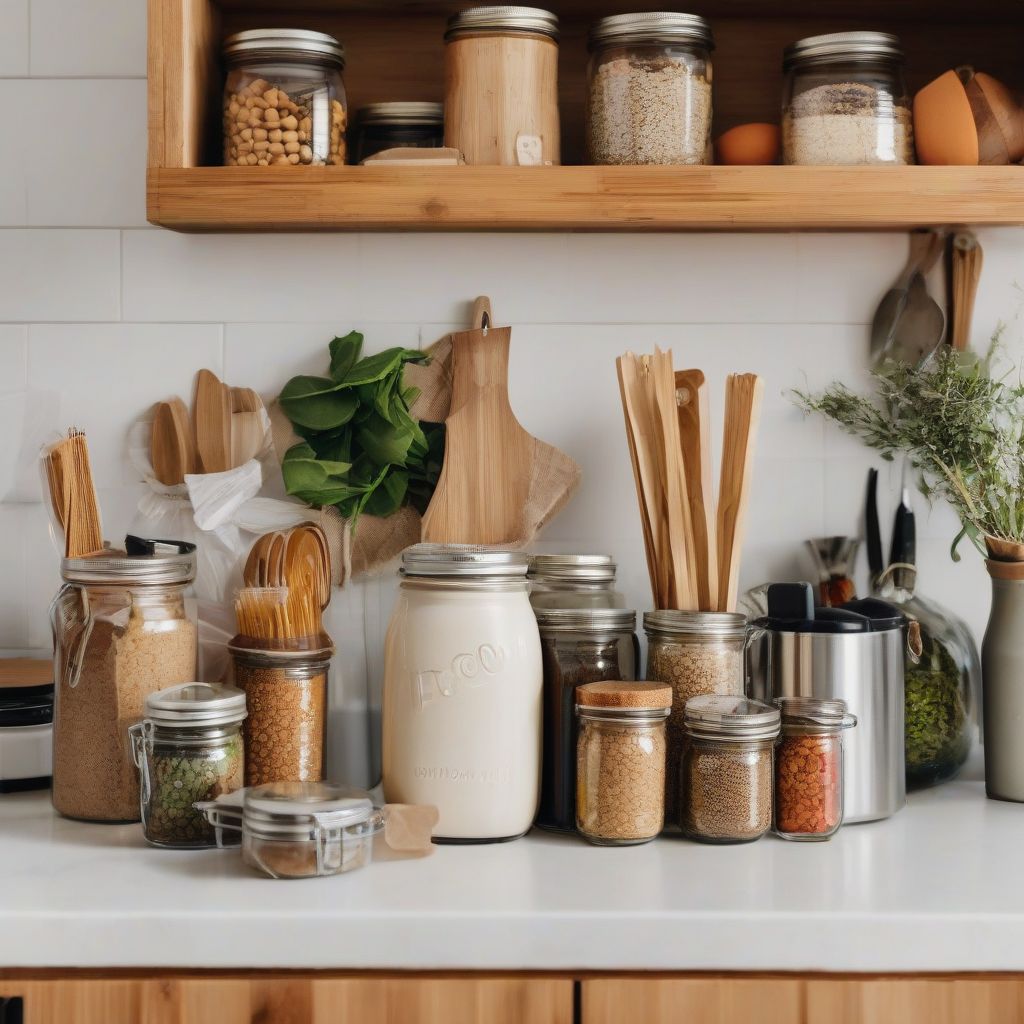Have you ever stopped to think about where your trash goes after it leaves your bin? It’s a journey most of us don’t consider, but the reality is, our landfills are overflowing. The good news? We can make a difference! Embracing a zero-waste lifestyle might seem daunting, but it’s about making small, sustainable changes, not achieving perfection overnight. This guide will walk you through incorporating eco-friendly products and practices into your daily routine to minimize your environmental impact.
Rethinking Your Relationship with “Stuff”
The first step towards a zero-waste life involves shifting your mindset. We live in a culture of disposables, but it doesn’t have to be this way. Here’s how to re-evaluate:
- Refuse: Say no to single-use plastics like straws, plastic bags, and excessive packaging. Opt for reusable alternatives whenever possible.
- Reduce: Before buying something new, ask yourself if you truly need it. Can you borrow, rent, or buy secondhand instead?
- Reuse: Get creative! Repurpose glass jars as food storage, turn old t-shirts into cleaning rags, and find new uses for items before discarding them.
- Recycle: Familiarize yourself with your local recycling guidelines and make recycling a non-negotiable part of your routine.
- Compost: Food scraps and yard waste don’t belong in landfills! Composting turns your organic waste into nutrient-rich soil for your garden.
Eco-Friendly Swaps for a Zero-Waste Kitchen
The kitchen is a great place to start your zero-waste journey. Here are some simple swaps:
- Ditch the Plastic Wrap: Beeswax wraps, reusable silicone food covers, and glass containers are great alternatives for storing leftovers and packing lunches.
- Reusable Shopping Bags: Keep a stash of reusable bags in your car or by the door so you’re never caught unprepared at the checkout.
- Water Bottles and Coffee Cups: Invest in a quality reusable water bottle and coffee cup. Many coffee shops even offer discounts for bringing your own cup!
- Bulk Food Shopping: Bring your own containers to the bulk food store and stock up on pantry staples like grains, nuts, and snacks, reducing packaging waste.
- DIY Cleaning Supplies: Make your own cleaning products using simple ingredients like vinegar, baking soda, and essential oils.
Eco-Friendly Bathroom Essentials
Even your bathroom routine can become more sustainable:
- Bamboo Toothbrushes: Switch from plastic to biodegradable bamboo toothbrushes.
- Safety Razor: Say goodbye to disposable razors! Safety razors are a longer-lasting, eco-friendly option.
- Bar Soap and Shampoo: Choose bar soap and shampoo over their liquid counterparts, which often come in plastic packaging.
- Reusable Makeup Remover Pads: Instead of disposable cotton rounds, opt for washable and reusable makeup remover pads made from bamboo or organic cotton.
Sustainable Fashion Choices
The fashion industry has a significant environmental impact. Here’s how to make your wardrobe more sustainable:
- Shop Less: Reduce your consumption and only buy clothes you truly love and will wear for years to come.
- Choose Sustainable Brands: Support brands that prioritize ethical labor practices, use eco-friendly materials, and minimize waste.
- Embrace Secondhand Clothing: Thrifting, clothing swaps, and online consignment shops offer fantastic ways to refresh your wardrobe sustainably.
Zero-Waste Living On-the-Go
Maintaining a zero-waste lifestyle doesn’t end at home. Here are some tips for on-the-go:
- Pack Your Own Lunch: Use reusable containers and ditch the single-use plastic bags and cutlery.
- Carry a Reusable Water Bottle: Stay hydrated without relying on single-use plastic water bottles.
- Refuse Single-Use Items: When ordering food or drinks, politely decline straws, plastic cutlery, and condiment packets you don’t need.
 Zero Waste Kitchen Essentials
Zero Waste Kitchen Essentials
The Benefits of Embracing a Zero-Waste Lifestyle
Adopting a zero-waste lifestyle isn’t just good for the planet; it can also benefit you!
- Save Money: By reducing consumption and reusing items, you’ll likely spend less money in the long run.
- Improved Health: Many eco-friendly products are also free from harmful chemicals, benefiting your health and well-being.
- Connect with Your Values: Living in alignment with your values can bring a sense of purpose and satisfaction.
[amazon bestseller=”zero waste kitchen”]
Conclusion
Transitioning to a zero-waste lifestyle is an ongoing journey, not a destination. Start by making small changes in your daily routine and incorporating eco-friendly products gradually. Remember, every step you take towards reducing waste makes a positive impact. Share your zero-waste journey and inspire others to do the same. Let’s create a healthier planet, one conscious choice at a time!
